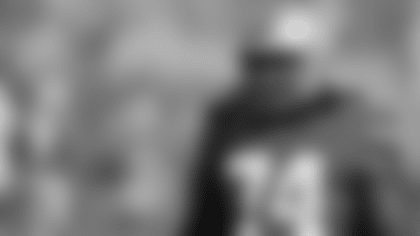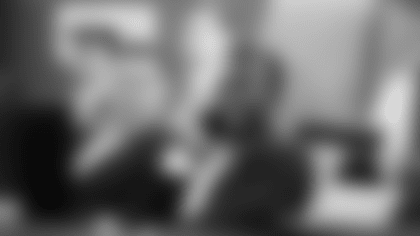By: Lindsey Young
Kwesi Adofo-Mensah maintains a largely unflappable demeanor.
After all, one who first worked on Wall Street and now serves as the Vikings general manager likely isn't easily flustered.
But even Adofo-Mensah has experienced mental health challenges and moments of anxiety.
It's why he's passionate about mental health advocacy and educating others at a young age about being mindful, self-reflective and vulnerable.
Vikings GM Kwesi Adofo-Mensah hosted high school students from Project Success and Boys & Girls Clubs for a mental health panel at the TCO Performance Center.

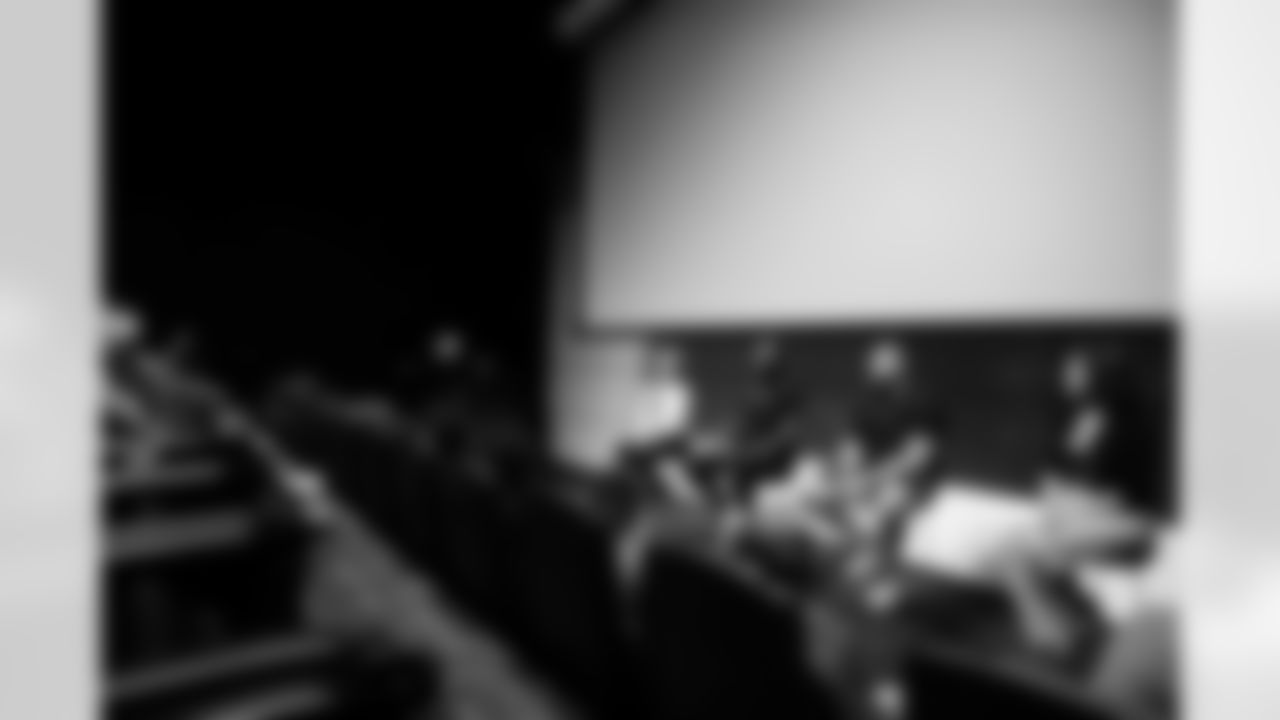
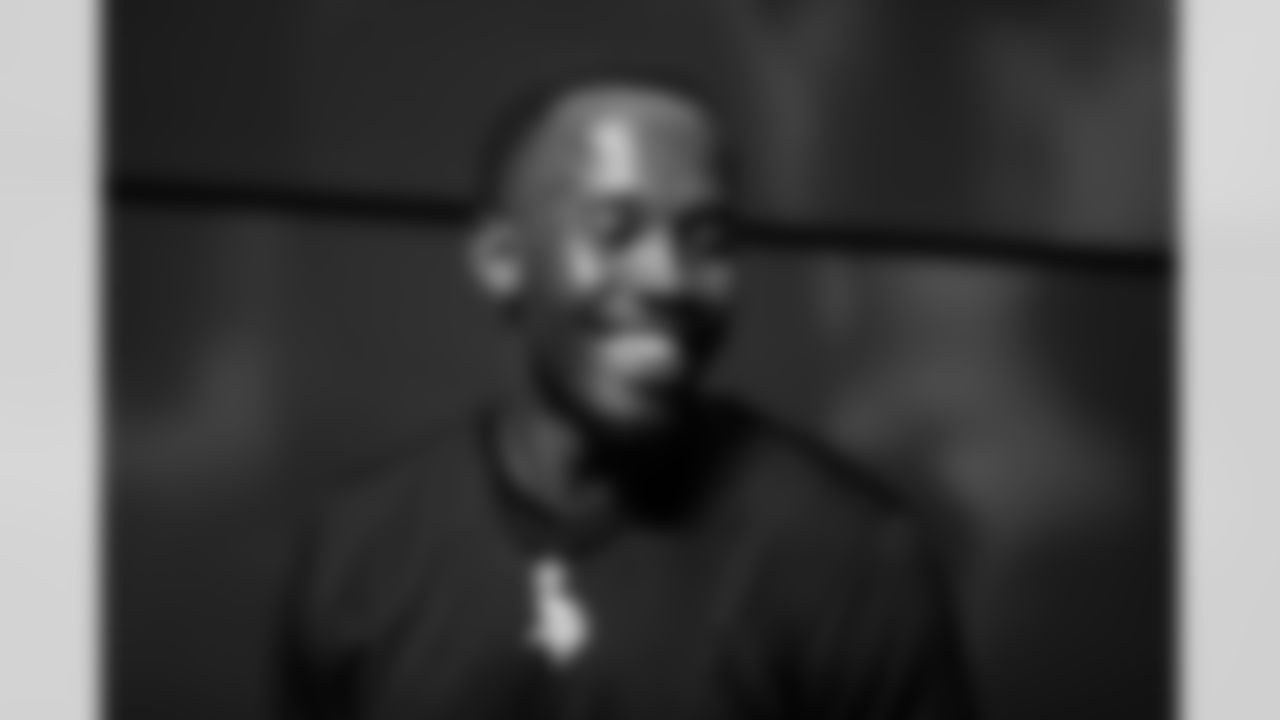
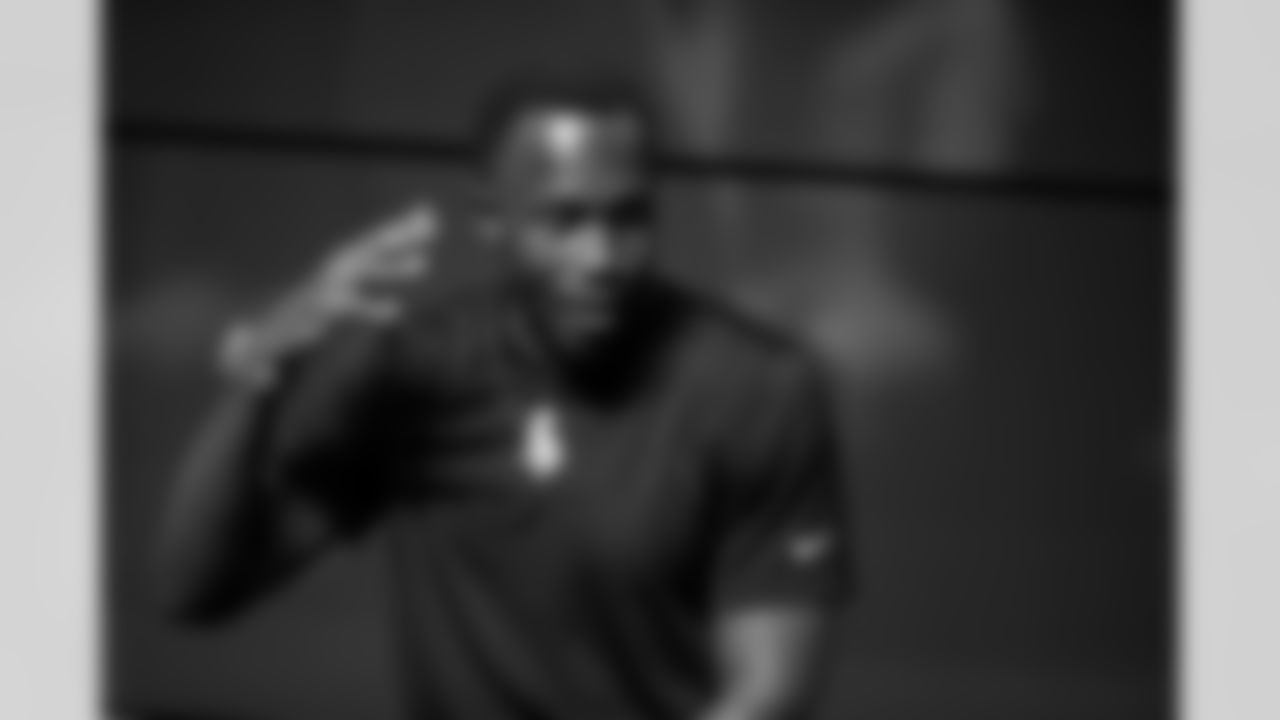
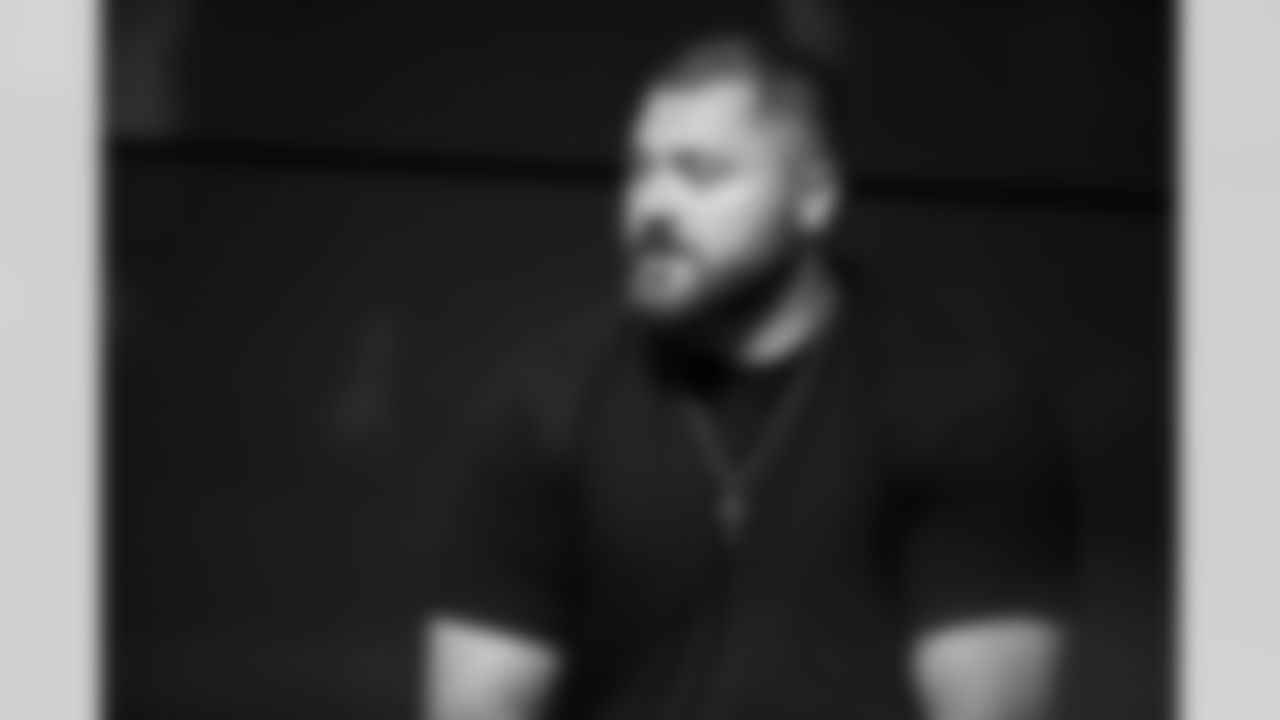
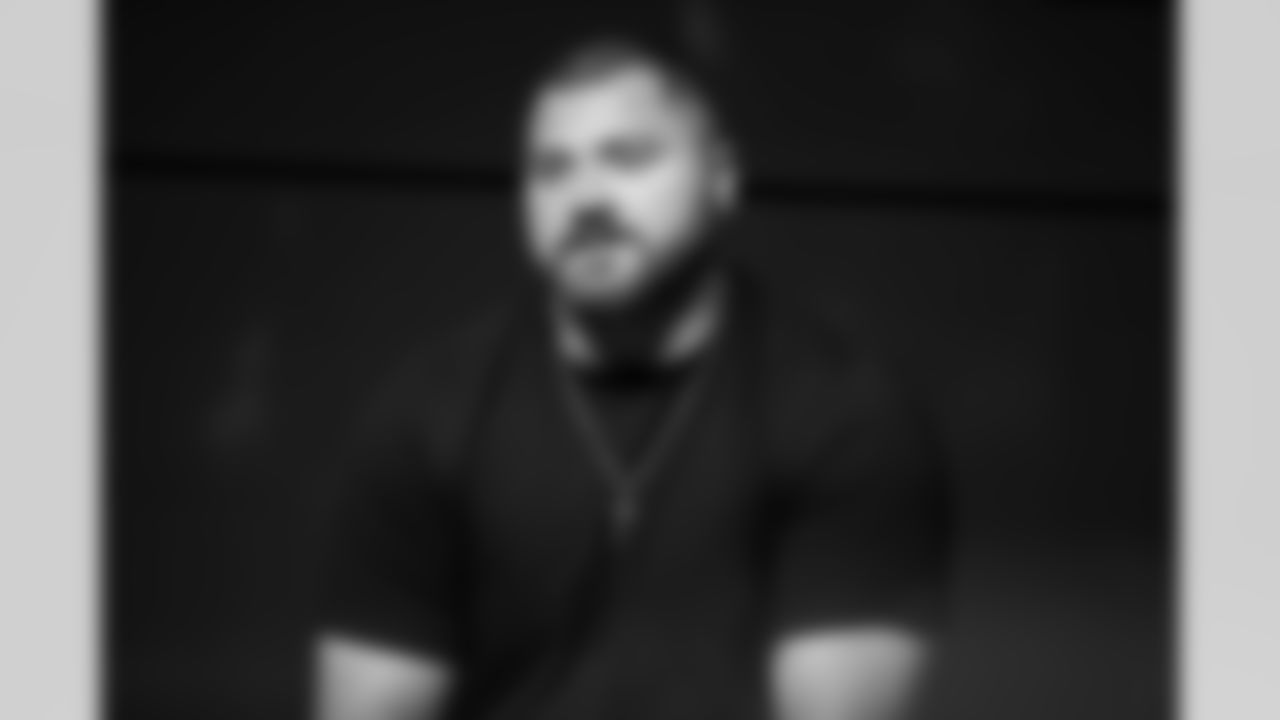


Adofo-Mensah on Wednesday hosted high school students from Project Success and local Boys & Girls Clubs at Twin Cities Orthopedics Performance Center for an engaging panel on mental health. He was joined by Vikings defensive tackle Harrison Phillips, as well as Touchstone Mental Health Vice President Michelle Wincell O'Leary.
"It means a lot. It's not often that an organization such as the Vikings reaches out," Wincell O'Leary said. "To know there are partners, who serve as role models to the rest of our community, interested in what we do and in reaching more people through this organization and partnership, it just means everything.
"Our staff works 24 hours a day helping individuals, so to be able to have more visibility through an organization that has such a great reputation, it feels really great," she added.
Adofo-Mensah, who represented Touchstone for last season's My Cause My Cleats initiative, explained to the young people that everyone is on a "mental awareness journey" throughout their lives.

"When I was probably your age … I was a young kid who thought he had the whole world figured out. 'Just get up. Stop being weak.' I was kind of one of those guys," Adofo-Mensah admitted, chuckling. "Then I got cut from the basketball team when I was 15."
The Vikings GM calls that experience a "transformational time" in his life, as over the next year-and-a-half he faced challenges he later understood to be related to mental health. He navigated through that time, however, making it through to the other side.
But that experience as a 15-year-old continued to impact Adofo-Mensah, who has always been driven by curiosity and introspection.
"I've always thought mental health was important and why we should learn and study ourselves and understand those things," he explained.

Adofo-Mensah shared about a moment he had during the COVID-19 pandemic that prompted him to continue digging even deeper into his own experiences.
After a morning in which he found himself feeling unusually emotional, Adofo-Mensah listened to a familiar podcast on his drive home. Though on this particular episode, the show tackled a unique subject.
"I believe everything happens for a reason," he said. "I was listening to a podcast I normally listen to about how businesses are built. It [didn't have anything to do with mental health]. But the founder was talking about how he'd battled depression growing up, and partly it was because his parents used to show him so much love that he craved attention. And that really got me thinking; it was like, 'Whoa. Something good can also have a negative effect.' "
The individual mentioned a book called Awareness, which Adofo-Mensah sought out and read.
"It's an incredible book. It talks about how we study ourselves," he said. "Just almost dispassionately observing ourselves. Because the world does things to us, and the human spirit is so resilient, in a good way, that it tries to counterbalance it."
He told the young people he sees a life coach, with whom he opens up and shares these things with, in order to learn more about himself and understand why and how he reacts to certain situations.
"That learning gives you all this power," Adofo-Mensah said of introspection. "When you go through [difficult] stretches, it's like, 'Yeah, it's happening.' But I know why. Because I've studied myself and feel this power, and it will pass.
"So for me, it's awareness and observation," he added. "Now, sometimes that awareness and observation can lead you to believe that you really need to go seek help. Not just sit in a room. You need to go get a real resource."
Wincell O'Leary echoed Adofo-Mensah's comment to the students, encouraging them to find someone in their lives they feel comfortable opening up with – whether a parent, peer, coach or potentially a professional therapist.

Phillips also urged the young people to normalize conversations around mental health and emotions.
While the Vikings defensive tackle considers himself fortunate to have not "experienced extremely long periods of dark times," he still prioritizes working through things in his own life, as well as being there as a support for teammates and loved ones.
"I think it's really important, the precedent that's being set today, that it's important to come out and find help if you need it. It's great to see the resources that are available, things like this that you guys are doing, text or phone chat lines. Suicide rates shouldn't be rising the way they are," Phillips said.
He added that he's impressed by the way mental health conversations are so much more commonplace than they were even 10 years ago.
"I can see in my six years in the NFL, and three back at Stanford, the difference in how accepted it is and how much we talk about it as alpha male football players," he said. "It comes up weekly, daily – checking in with our boys."
Adofo-Mensah and Phillips accentuated the importance of doing just that, as well as being vulnerable themselves to foster a safe space.
"For a lot of people in my life, I'm always this calm, happy person – I used to work on Wall Street and now I do this job – and it's like, 'You have anxiety?' And it's like, 'Yeah, once in a while. I go through a couple things,' " Adofo-Mensah said. "Just me telling them that kind of opens their eyes, and they might tell me their own story."
He told students that during the pandemic, he'd virtually gather with friends and ask them, 'OK guys, who wants to talk about feelings?"
"If you don't know me that well, you might think that's the last thing I'm going to say," he laughed. "But we'd have a Zoom call, and we'd just talk about stuff.
"I've had some of my closest friends, who I've lived with, known for a long time, and I'd learn stuff about them. I'd known them for 15 years," Adofo-Mensah added. "You guys are better than us, but our generation, we didn't really talk very much about those these things [as men]. Not to generalize, but that's what I'd say."
Anecdotally, men tend to be less likely to seek mental health support or share among peers. But that tide is turning, and Adofo-Mensah and Phillips want to be part of the change.
"I use my own vulnerability to connect. It's hard for me to ask my friends what's really going on in their lives or open up if I don't do that myself," Phillips told the group. "If someone asks me a straight-up question, I give them a real answer. I let people know how I'm feeling or things that I'm dealing with. You just get a more personal relationship with someone, so when you ask them, they don't just say, 'I'm good, how are you doing?' They might actually tell you a little bit more.
"I always try to be my true, authentic self," Phillips added. "At a high school level, I probably wasn't. I was trying to save face … worrying about the next Friday night party I could get into, probably. … But I think that's what's really tough, really cool – being vulnerable."
Wincell O'Leary described the impact Wednesday's event can have on young people.
"Having a role model – whether it's someone from the Vikings, or a coach, or a teacher … having someone you look up to tell you they've had these experiences normalizes it at a whole different level," she told Vikings.com. "When someone who's a [parent] figure or a therapist, those are good too, but to get it validated externally by someone you look up to? That makes all the difference."
Wincell O'Leary said the messaging is especially important for high school students who will soon be transitioning to college, full-time jobs, etcetera.
It's crucial that young people understand the anxiety or apprehension they're experiencing as they approach adulthood are completely normal and expected.
"Some of the general tips about taking good care of yourself, maintaining some sense of balance, coming up with the strategies that work for you, having a good support system and just reminding people that everyone makes mistakes [is helpful]," Wincell O'Leary said. "We can help people move through that transition by answering questions – instead of everyone feeling like, 'I have to figure it out. I'm all by myself. Nobody understands.' "
Adofo-Mensah and Phillips shared with the students their own routines and mental health practices.
Phillips relies on his Christian faith and regular prayer, both in the highs and lows of life, and he reminds himself he often can't see the big picture in the moment.
He and Adofo-Mensah both integrate regular exercise into their day, whether in-season or not.
"I think the best workouts of my life were when a girl dumped me," Phillips quipped.
"I exercise 25 minutes every morning because I know when I'm done, when I sweat, everything just feels calm," Adofo-Mensah added. "And whatever world happened the night before, I can breathe and deal with it."
In addition to physical activity, he also regularly turns to prayer and reflection, and he spends time in the sauna journaling when feeling especially bogged down by circumstances.
"Because I grew up thinking I shouldn't show emotion – I was of the mindset of, 'Oh, I'm fine' – but it's like a thousand little papercuts, and then the last one really gets me. And it'll be the most random thing, too," he said. "I have to go write out all those little things I ignored, and then I can sit and think about it. I'm a person who doesn't like to feel helpless. So as long as I write it out and feel like I'm attacking it in some way, I'm on the upswing and I feel great about it. So for me, it was finding out what my process was."
To learn more about Touchstone Mental Health and its grassroots work in the Twin Cities community, particularly around homelessness, click here.
May is Mental Health Awareness, and the Vikings are "Getting Open," having important conversations and breaking down stigma around mental illness. Remember, it's OK to not be OK.
To read more Getting Open stories, click here.



